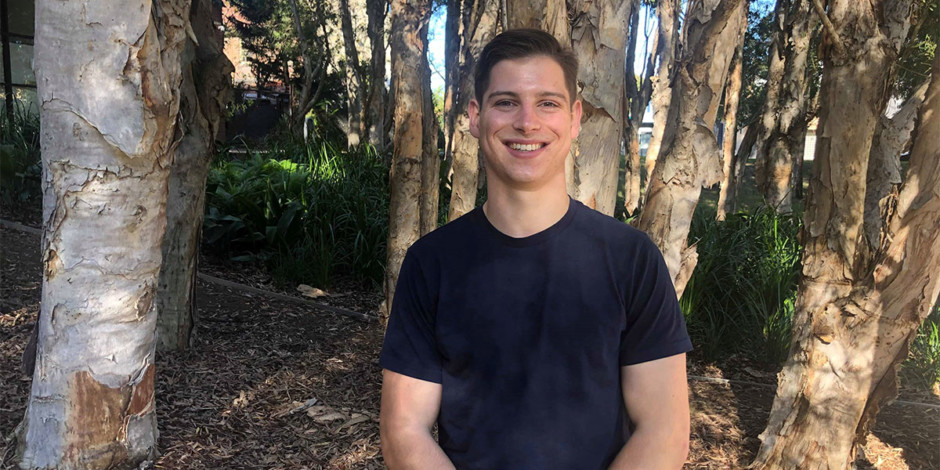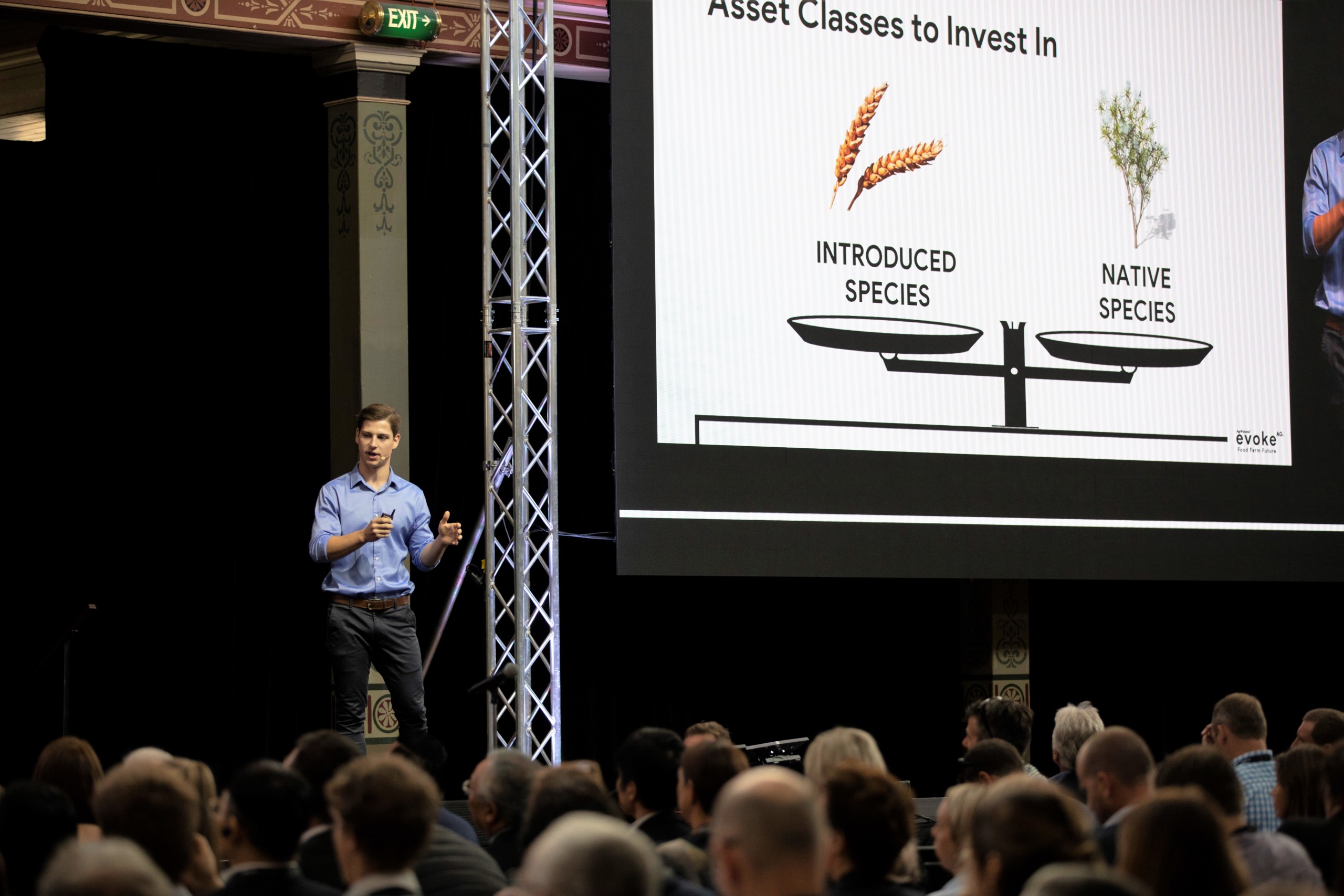Collaboration the key to future-proofing our rural industries
AgriFutures' Horizon Scholar and 2019 evokeAG. Future Young Leader, Matt Nevison believes bringing together the worlds of economics and sustainability will help to create a stronger future for Australian agriculture.

Matt lived in Shanghai and Kuala Lumpur as a child, where he developed an appreciation for Australia’s role in feeding the world. It was here that his drive to contribute to a more sustainable future for agriculture began. Since then, Matt has used his study and Horizon Scholarship experience to look at the issues of food security and natural resources through the lens of sustainability.
Recently graduating from a degree in agribusiness and about to embark on a graduate role with KPMG, Matt is ready to bring together the worlds of economics and sustainability in a way that is good for both business and the environment.
“I could be optimistic or stubborn, but I refuse to believe there isn’t a way to manage natural resources in a way that isn’t damaging to the environment but also can produce returns to farmers of all scales. The solution is just waiting to be discovered,” explains Matt.
RELATED: How agtech can help remedy horticulture’s labour challenge
Matt sees a disconnect between the idealists and the realists in the sustainability space and says understanding the economic imperative is key to resolving this disconnect.
“Between family farms, the corporate world, and industry, the agricultural market is fragmented and everyone has a different definition of sustainability. We need to make sense of it in a framework that is pragmatic to business, because sustainability will take a lot of capital.
“The corporate space of sustainability has already been forced to take a lead. Agriculture is a huge user of natural resources and it is time to prove our sustainability credentials,” said Matt.
That’s where Matt hopes to marry his passion for sustainability with his agricultural prowess to create a stronger future for Australian agriculture.
“I really want to contribute to the development of an endurable model for Australian agriculture, a model that can weather environmental and economic volatility. I am excited by an ecosystem that prioritises collaboration as I believe this will act as a gateway to the future success of our rural economies.”
What’s the solution?
According to Matt, the solution involves carbon credits, the food in our own backyard and a multi-disciplinary approach.
“I think creating a free and open market to export carbon credits to the world and developing Australia’s capacity to be a player in the global carbon market will play a huge role in the future of agriculture.”
Matt also sees huge untapped potential in our own backyard, noting native species could be food for the future.
“I think there’s merit in investigating the use of native species such as Kakadu Plum, Davidson Plum, Quandong, Native Pepper and Lemon Aspen as value-added foods.
“These crops have the potential to climate-proof multi-output farming enterprises, benefit indigenous stakeholders and contribute to building a stronger brand identity for Australian Agriculture to export to the world,” explains Matt.
Carbon credits and native foods aren’t the only tickets to the future, Matt believes a collaborative approach will be crucial.
RELATED: Soil carbon markets: the risk, rewards, costs and complications
“Agriculture is so multifaceted, and with this comes the need for a multidisciplinary effort to develop solutions. A great way to do this is by attracting city kids into a career in agriculture. Agriculture is a place for change makers, and that’s how we need to position it to the next generation of rural leaders.”
 As a recent Horizon scholar and 2019 evokeAG. Future Young Leader, Matt is well and truly invested in the future of rural industries and says there’s a lot more to it than farm work.
As a recent Horizon scholar and 2019 evokeAG. Future Young Leader, Matt is well and truly invested in the future of rural industries and says there’s a lot more to it than farm work.
RELATED: My evokeAG. experience – Leesa Chen, 2020 Future Young Leader
“There are so many opportunities in agriculture that make it attractive and I don’t think enough young people realise it. From climate change solutions and food security to finance and technology – agriculture allows you to do it all!”
No better time to be involved in agriculture
Matt is a passionate advocate for careers in agriculture and says despite the perceived challenges, he is confident the future is looking bright.
“Now appears to be a turbulent time in terms of politics and the environment, but there is no better time to be involved in agriculture. We have never had more capable technology or people to solve the problems and no time is better than the present.”
Find out more about the Horizon Scholarship program at www.agrifutures.com.au/horizon.
Enjoyed this story? Want to learn more about the Asia Pacific region’s innovative agrifood tech ecosystem? Sign up for our newsletter here and receive fresh stories about global leaders, farmers, startups and innovators driving collaborative change.
